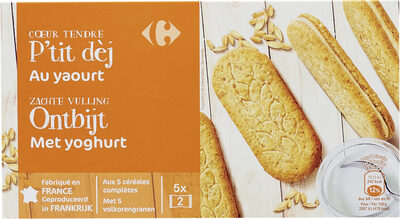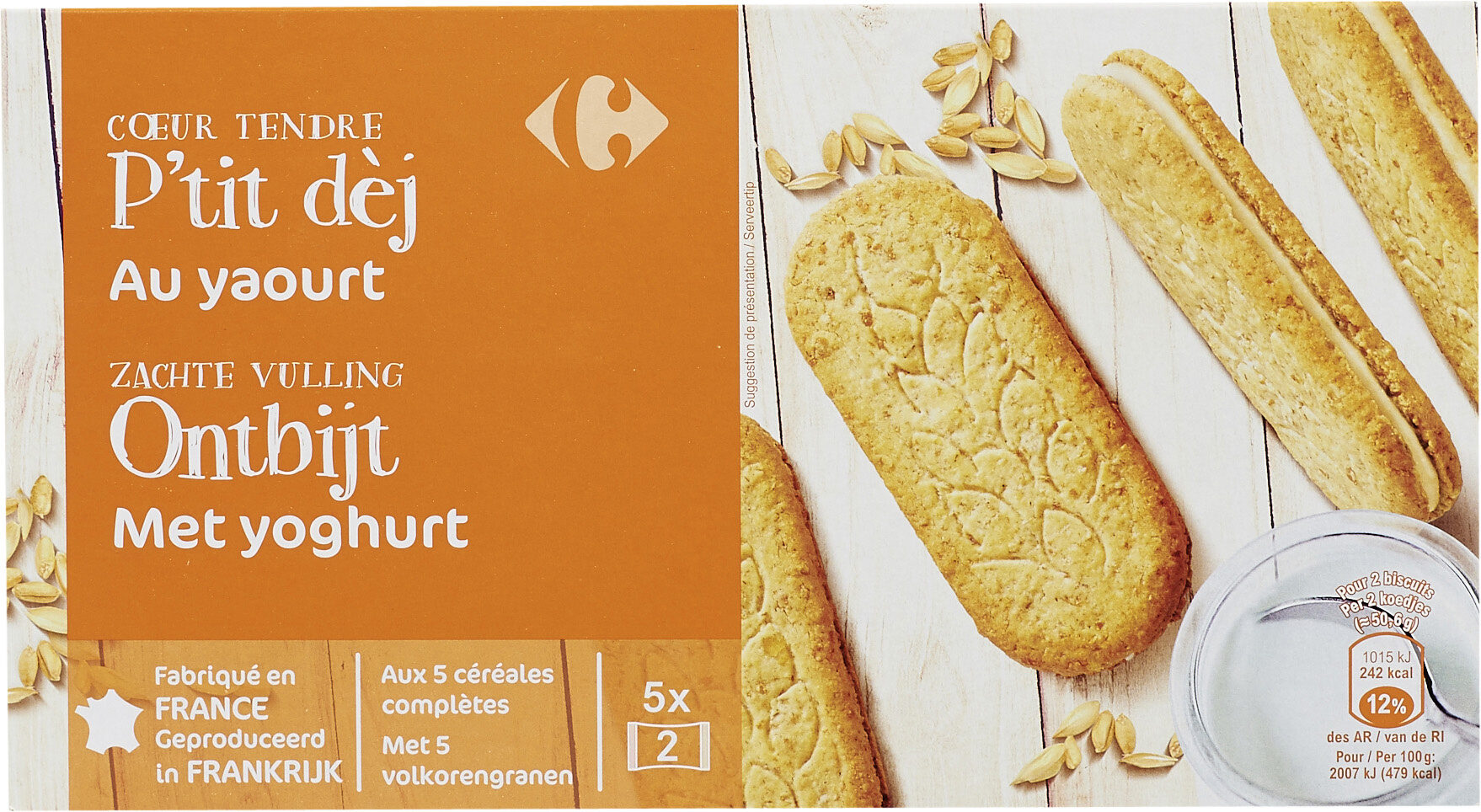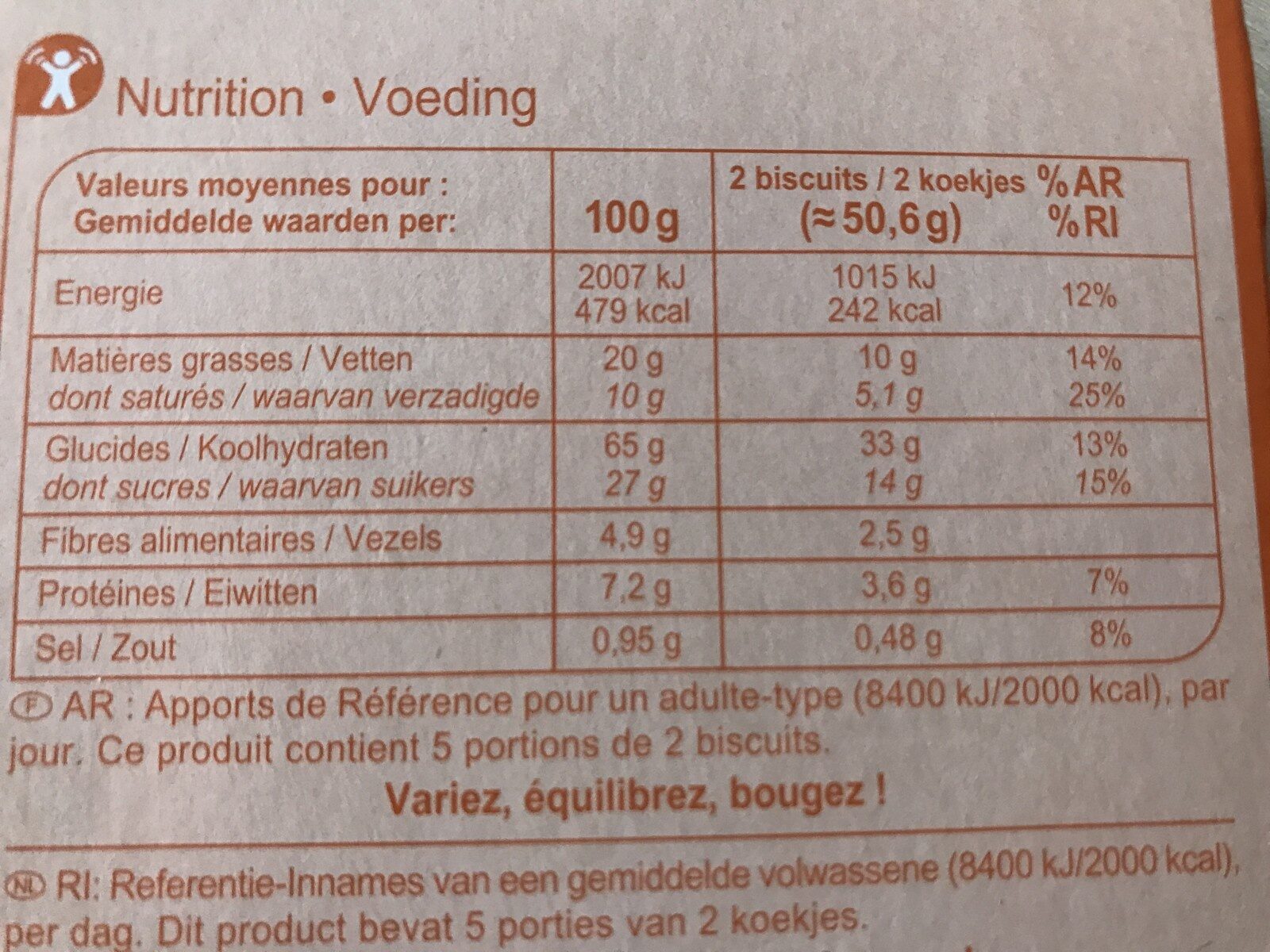Duo breakfast - Carrefour - 253 g
Some of the data for this product has been provided directly by the manufacturer Carrefour.
Barcode: 3560070765430 (EAN / EAN-13)
Common name: Cereal biscuits, yoghurt filling (25%)
Quantity: 253 g
Brands: Carrefour
Categories: Snacks, Sweet snacks, Frozen foods, Biscuits and cakes, Biscuits, Biscuits et gâteaux, Petit-déjeuners, Snacks sucrés
Labels, certifications, awards:
Source of fibre, Green Dot, Made in France, Nutriscore, Nutriscore Grade D
Origin of ingredients: European Union
Manufacturing or processing places: France
Traceability code: EMB 45315 - Sully-sur-Loire (Loiret, France)
Stores: Carrefour, Carrefour market, carrefour.fr
Matching with your preferences
Other information
Conservation conditions: Store away from heat and moisture. Best before end / Batch no. : see on the right side of the package.
Customer service: Interdis - TSA 91431 - 91343 MASSY Cedex - France.
Report a problem
Data sources
Product added on by openfoodfacts-contributors
Last edit of product page on by quechoisir.
Product page also edited by additives-app-chakib, autorotate-bot, cg-rom, desan, didierg, driveoff, jeremy64, kiliweb, org-carrefour, packbot, roboto-app, sebleouf, segundo, tacite, yuka.NJRjN_SVG-YaNsjI_69v5AmxSM35CfJmSEASog, yuka.ZHY0NUdvb1FvTlFNc2ZkaTlUUFBvZElwNjVHeFgyU25ETllVSVE9PQ.












